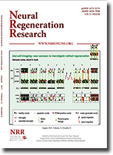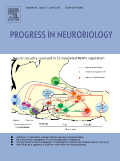
ACTA NEUROBIOLOGIAE EXPERIMENTALIS
Scope & Guideline
Illuminating the Complexities of Medicine and Mind
Introduction
Aims and Scopes
- Neuropharmacology and Drug Effects:
The journal publishes research on the effects of various drugs, including opioids, cannabinoids, and antidepressants, on the nervous system, examining their mechanisms of action and potential therapeutic benefits. - Neuroprotection and Neurodegeneration:
Research focused on neuroprotective strategies and the molecular mechanisms underlying neurodegenerative diseases, such as Alzheimer's and Parkinson's, is a core area of interest. - Neuroinflammation and Immune Response:
Studies exploring the role of the immune system in neurological conditions, including the impact of inflammatory processes on neurodegeneration and recovery, are frequently featured. - Behavioral Neuroscience:
The journal highlights research that connects behavioral outcomes with neurobiological changes, investigating how drugs, stress, and environmental factors influence behavior. - Neurodevelopment and Neuroplasticity:
Research on the mechanisms of neurodevelopment and the plasticity of neural circuits across different conditions, including aging and injury, is a significant focus. - Molecular and Cellular Mechanisms:
The journal emphasizes studies that delve into the molecular and cellular mechanisms that govern neuronal function and pathology, including gene expression and signaling pathways.
Trending and Emerging
- Gut-Brain Axis Research:
Increasing attention is being paid to the interactions between gut microbiota and neurological health, particularly in relation to conditions like hepatic encephalopathy and neuroinflammation. - Biomarkers and Prognostic Indicators:
There is a rising trend in identifying biomarkers for neurological diseases, which may serve as prognostic indicators and aid in the development of personalized treatment strategies. - Neurotechnology and Imaging Techniques:
The use of advanced imaging techniques and neurotechnological methods to study brain function and structure is gaining prominence, reflecting a broader trend towards integrating technology in neuroscience. - Stress and Neurobehavioral Studies:
Research focusing on the effects of stress on neurobiology and behavior is becoming more prevalent, highlighting the importance of psychological factors in neurological health. - Neuroinflammation as a Therapeutic Target:
There is an emerging interest in targeting neuroinflammation for therapeutic purposes, with studies exploring anti-inflammatory strategies in the context of various neurological disorders.
Declining or Waning
- Traditional Herbal Medicine Research:
There has been a noticeable decrease in studies specifically focused on traditional herbal remedies and their neuroprotective effects, suggesting a shift towards more contemporary pharmacological approaches. - Psychological and Behavioral Studies:
Research examining psychological aspects of neurological diseases, such as mood disorders related to neurodegeneration, appears less frequently, indicating a potential shift towards more biological and mechanistic studies. - Neurogenesis Studies:
The exploration of neurogenesis as a therapeutic target seems to be waning, with fewer papers addressing the generation of new neurons in adult brains compared to previous years.
Similar Journals

NEUROSCIENTIST
Driving Excellence in Neuroscience ScholarshipNEUROSCIENTIST is a leading journal in the field of clinical neurology and neuroscience, published by SAGE Publications Inc. With an impressive impact factor reflected in its Q1 quartile ranking in both clinical neurology and miscellaneous neuroscience as of 2023, this journal positions itself as a crucial platform for the latest research and advancements in the neural sciences. Spanning from 1995 to 2024, NEUROSCIENTIST features a range of high-quality, peer-reviewed articles that cater to researchers, practitioners, and students alike. Although it does not offer Open Access options, the journal remains a vital resource owing to its Scopus rankings, situating it within the top percentile of its categories: ranked #28 out of 400 in clinical neurology and #15 out of 113 in general neuroscience. The journal's commitment to disseminating significant findings underlines its importance in fostering advancements in neurological understanding and treatment.

NEUROMOLECULAR MEDICINE
Connecting Molecular Science with Neurological HealthNEUROMOLECULAR MEDICINE, published by HUMANA PRESS INC, is a prestigious peer-reviewed journal dedicated to advancing the fields of cellular and molecular neuroscience, molecular medicine, and neurology. With an ISSN of 1535-1084 and an E-ISSN of 1559-1174, the journal boasts a significant presence in academic research since its inception in 2002 and continues to publish cutting-edge studies through 2024. Ranked in the Q2 category for 2023 in various disciplines, including Neuroscience and Molecular Medicine, it holds impressive positions in Scopus rankings, including 41st out of 192 in Neuroscience and Neurology. Although not an open access journal, NEUROMOLECULAR MEDICINE remains invaluable for researchers, professionals, and students seeking to explore the intricate relationships between molecular mechanisms and neurological functions, thereby contributing to the scientific understanding of nervous system diseases and therapeutic innovations.

TRENDS IN NEUROSCIENCES
Exploring the Frontiers of Brain ResearchTRENDS IN NEUROSCIENCES, published by CELL PRESS, is a leading journal in the field of neuroscience, offering cutting-edge insights and important developments in the rapidly evolving landscape of brain research. With an impressive Impact Factor and ranking in the top quartile (Q1) of the category for Neuroscience (miscellaneous), it is positioned as a vital resource for researchers and professionals seeking to stay abreast of the latest discoveries and trends from 1978 to the present. Specifically ranked #3 out of 113 in General Neuroscience by Scopus, this journal promotes the interdisciplinary exchange of ideas and knowledge, making it an essential platform for students and experienced scholars alike. Although it is not an Open Access journal, its value lies in its rigorous peer-review process and commitment to maintaining the highest standards of academic integrity. By continuing to explore the complexities of neural processes and behavior, TRENDS IN NEUROSCIENCES plays a crucial role in shaping the future of neuroscience research and education.

Eneurobiologia
Innovating Understanding of the Nervous SystemEneurobiologia is an esteemed open-access journal published by UNIV VERACRUZANA, INST INVESTIGACIONES & EDUCACION, dedicated to advancing research in the vibrant field of neurobiology. With its launch in 2010, the journal aims to disseminate high-quality, peer-reviewed research articles that explore the complexities of neural systems, neurodevelopment, and neurodegenerative disorders. By providing a platform for both established researchers and emerging scholars, Eneurobiologia fosters interdisciplinary collaboration and knowledge exchange within the scientific community. Its open-access model ensures that valuable findings are accessible to a global audience, promoting the widespread application of neurobiological research. As a crucial resource for students, professionals, and researchers alike, Eneurobiologia plays a pivotal role in shaping the future of neurobiological studies and enhancing our understanding of the brain and nervous system.

MOLECULAR NEUROBIOLOGY
Bridging Basic Science and Clinical InnovationWelcome to Molecular Neurobiology, the premier journal dedicated to the exploration of the molecular mechanisms underlying nervous system function and pathophysiology. Published by Springer, this journal provides an essential platform for disseminating high-quality research in the rapidly evolving fields of Cellular and Molecular Neuroscience and Neurology, boasting an impressive impact factor that reflects its esteemed position within the academic community. With its ranking in the Q1 and Q2 quartiles for various neuroscience categories, Molecular Neurobiology stands at the forefront of groundbreaking discoveries, showcasing innovative studies that bridge basic science and clinical application. Researchers and professionals are invited to contribute to its rich portfolio, which spans from fundamental insights into cellular processes to advanced therapeutic strategies. Although Molecular Neurobiology does not operate as an Open Access journal, its influential body of work remains accessible through institutional and personal subscriptions. As we converge from 1987 to 2024, we continue to aim for excellence, seeking to catalyze progress in understanding neurological diseases and enhance the scientific dialogue within the neuroscience community.

Neural Regeneration Research
Exploring the frontiers of developmental neuroscience.Neural Regeneration Research is a premier Open Access journal, published by Wolters Kluwer Medknow Publications, dedicated to advancing the field of Developmental Neuroscience. Since its inception, the journal has established itself as a valuable resource for researchers, professionals, and students alike, providing a comprehensive platform for disseminating the latest findings and methodologies in neural regeneration. With an impressive Scopus Ranks placement of #3 out of 49 in its category and a Q2 Quartile ranking, the journal boasts a significant impact within the academic community, reflecting its high quality and relevance. Since adopting an Open Access model in 2011, it has expanded access to critical research in neural regeneration, fostering collaboration and innovation among scholars globally. Covering various aspects of neuroscience, its converged years from 2006 to 2025 highlight the journal's commitment to ongoing discourse and discovery. Situated in China, the journal not only promotes local insights but also connects the global research community to pressing topics in neuroscience, making it an essential read for anyone involved in this dynamic field.

PROGRESS IN NEUROBIOLOGY
Leading the Charge in Neurobiological DiscoveriesPROGRESS IN NEUROBIOLOGY is a prestigious journal dedicated to advancing the field of neuroscience, published by Pergamon-Elsevier Science Ltd. With an impressive impact factor, it stands as a critical resource for researchers, professionals, and students alike, featuring rigorous peer-reviewed articles that explore the latest developments in neurobiology. The journal has established itself as a leading publication, ranked in the Q1 category for Neuroscience (miscellaneous) and holding a notable 13/113 rank in General Neuroscience per Scopus metrics, placing it in the top 12% of its field. Since its inception in 1959, PROGRESS IN NEUROBIOLOGY has covered a wide array of topics, from molecular mechanisms to cognitive processes, fostering a comprehensive understanding of brain functions. While the journal is not open access, it ensures accessibility to profound knowledge through institutional subscriptions. Researchers and scholars will find critical analyses and innovative research that are pivotal for both foundational knowledge and cutting-edge investigations in the neuroscience realm.

eNeuro
Empowering discovery with accessible neuroscience research.eNeuro is a prominent open-access journal published by the Society for Neuroscience, dedicated to advancing the field of neuroscience through the dissemination of high-quality research. Launched in 2015, it reflects its commitment to accessibility by providing a platform for innovative studies and advancements in neurobiology. The journal holds a strong reputation, achieving a Q1 ranking in Medicine (miscellaneous) and a Q2 in Neuroscience (miscellaneous) as of 2023, with Scopus rankings placing it at #56 out of 113 in General Neuroscience, marking it in the 50th percentile. With its convergence to cover articles from 2014 to 2024, eNeuro continues to serve as a vital resource for researchers, professionals, and students alike, offering a comprehensive hub for the latest discoveries and theoretical developments in neuroscience. As part of its mission, eNeuro aims to foster collaboration and inspire the academic community with openly accessible content, making significant contributions to scientific discourse.

Translational Neuroscience
Innovating the Future of Neurological Science.Translational Neuroscience, published by DE GRUYTER POLAND SP Z O O, is a leading open-access journal since its inception in 2015, dedicated to the multidisciplinary exploration of neurological research and its clinical applications. With an ISSN of 2081-3856 and an E-ISSN of 2081-6936, the journal serves as a crucial platform for scholars and practitioners to disseminate innovative findings and theoretical advancements in the field of neuroscience. Covering various aspects of general neuroscience, it is ranked in the Q3 quartile for 2023 and positioned at Rank #75 out of 113 in its category, reflecting its growing impact within the scientific community. The journal strives to bridge the gap between laboratory research and clinical practice, fostering collaboration among researchers, clinicians, and educators. The editorial team is committed to maintaining high publication standards that engage the audience with rigorous research while promoting a culture of open science. For those interested in the forefront of neuroscience research, Translational Neuroscience offers an invaluable resource for knowledge and innovation.

BRAIN RESEARCH
Exploring the intricate connections of neural systems.BRAIN RESEARCH is a premier journal published by Elsevier, specializing in the intricate domains of neuroscience, developmental biology, and molecular biology. Established in 1966, this esteemed publication has become a cornerstone for researchers, professionals, and students dedicated to advancing our understanding of brain function and disorders. With an impressive impact factor and a consistent presence in the Q2 quartiles across key categories—such as Developmental Biology, Neurology, and Neuroscience—it stands out as an essential resource for disseminating innovative research and pioneering insights. The journal's scope encompasses both clinical and fundamental studies, fostering a multidisciplinary approach to the complexities of neural systems. Although it is not an open-access journal, BRAIN RESEARCH provides a vital platform for sharing progressive findings that can inspire future studies and contribute significantly to the evolutionary discourse in neuroscience. Based in the Netherlands, at RADARWEG 29, 1043 NX AMSTERDAM, BRAIN RESEARCH continues to shape the landscape of neuroscience research, inviting submissions that explore the latest discoveries and therapeutic strategies.